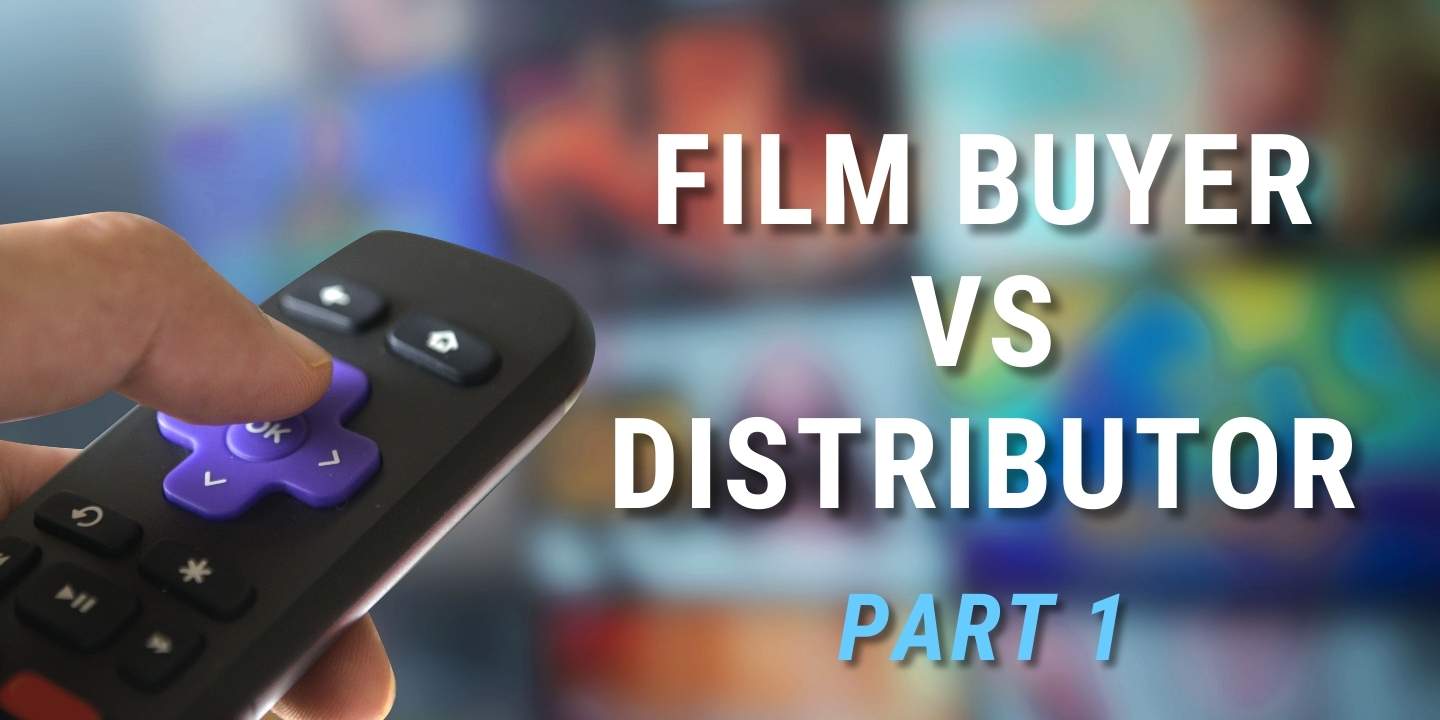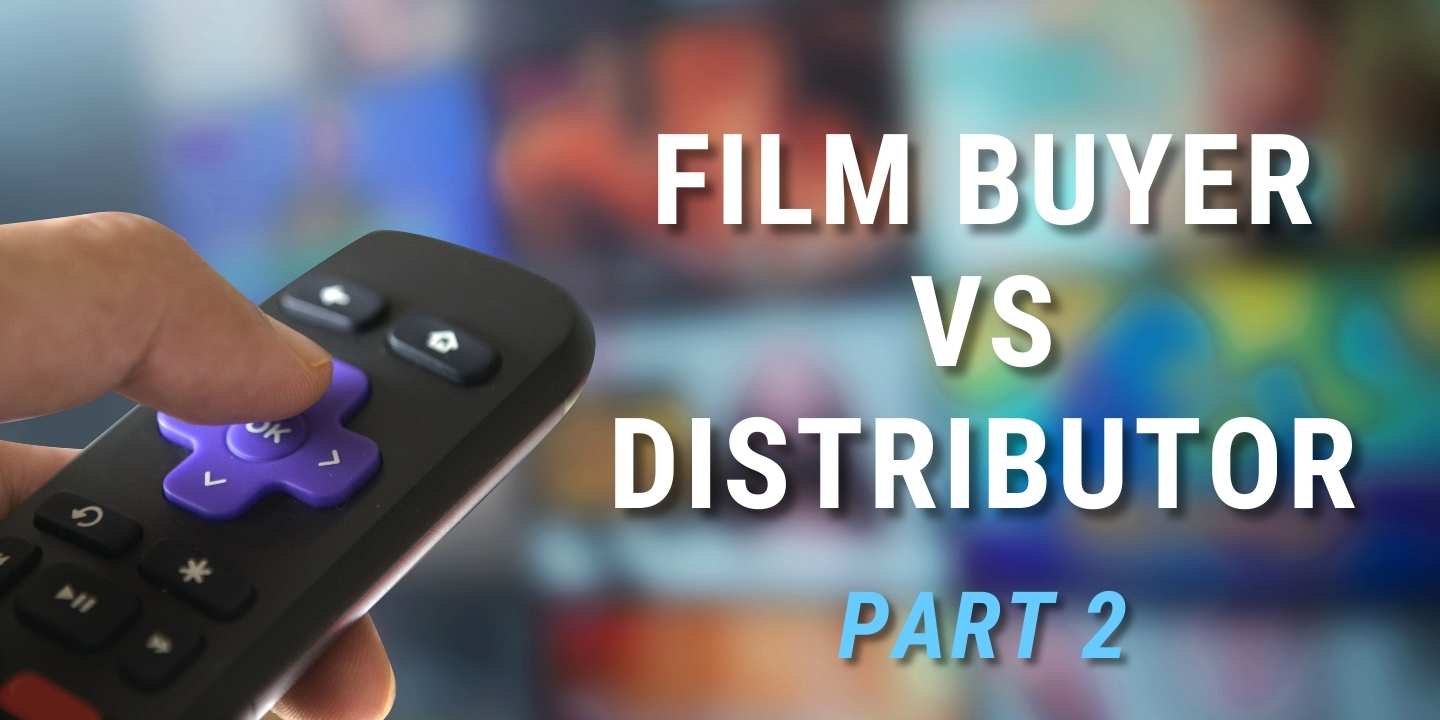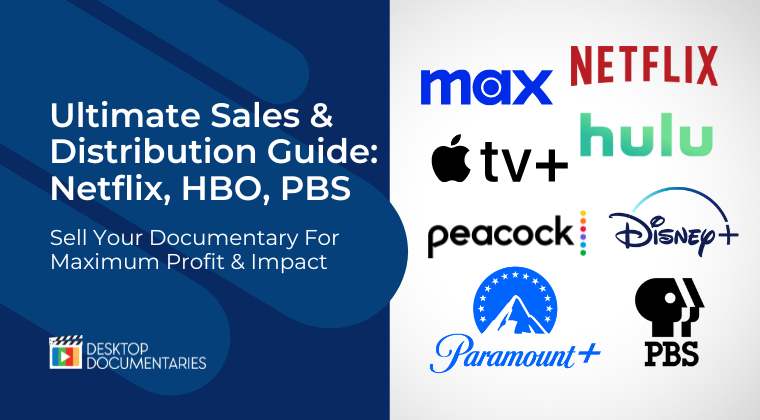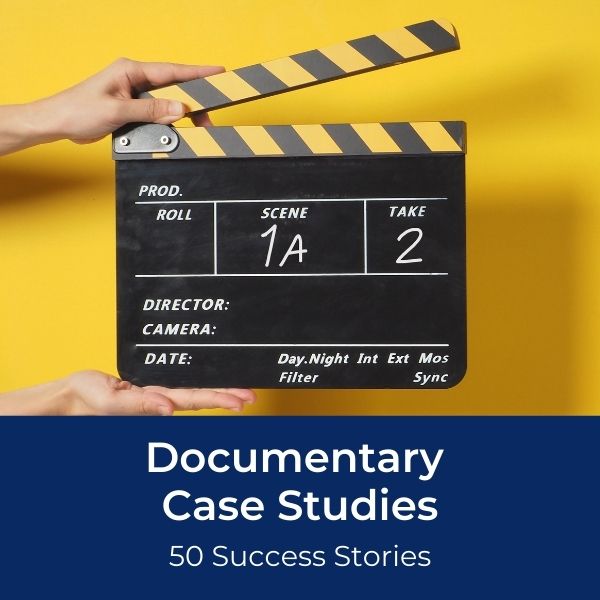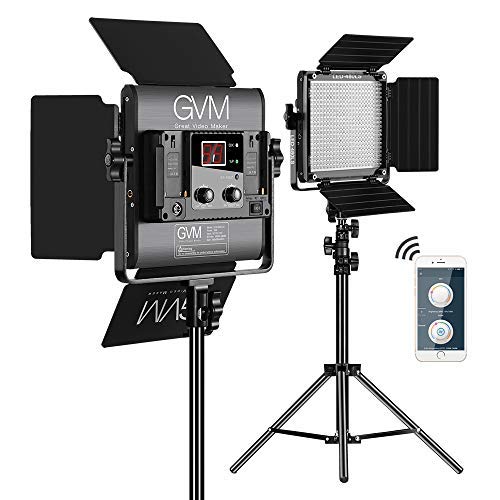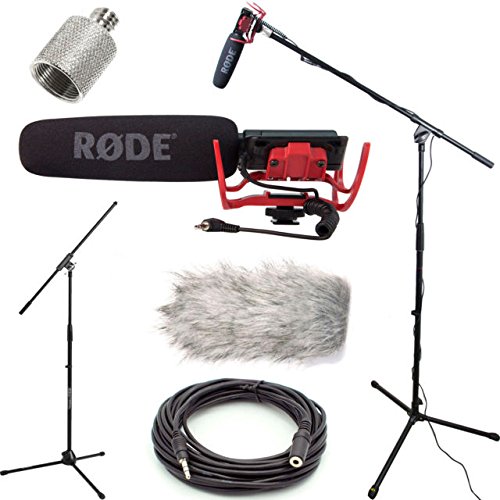Distributing Your Film:
The Difference Between A Film Buyer and Distributor
(And WHY IT MATTERS) - Part 1

Guest Post By: Anna Darrah / Co-Instructor of Ultimate Distribution Guide: Selling Your Doumentary For Maximum Profit and Impact
Distributing Your Film:
Why The Distinction Between Buyer and Distributor Matters
Who Buys Documentaries? 13 Real-World Options For Selling Your Film
How Does An Independent Filmmaker Get Their Movie On Netflix
How To Find A Distributor For Your Documentary
In my second year as director of acquisitions for Spiritual Cinema Circle I discovered the difference between buyers and distributors at a film festival in Canada.
I was on a large panel that was set up as a Q&A where filmmakers could ask buyers and distributors all of their questions directly.
The organizer put me in the buyer’s section.
I wasn’t sure why, so I asked, “Hey, what’s the difference between a buyer and a distributor?”
She thought about it for a second and said, “Well, you offer your films directly to your audience, right?”
I said yes.
This was 2005, and I was licensing films for our DVD club.
“Then you’re a buyer,” she said.
It was like the clouds parted and clarity rained down upon me. Suddenly everything made sense in a whole new way.
Buyers offer films directly to consumers. Distributors offer films to other companies.
Is this just semantics? Why does it matter?
Because for me, the most confusing aspect of film distribution is trying to understand the history and relationships between the companies involved in buying and selling films.
The more I know about each company, the smarter I can be about distribution.
I believe filmmakers need to understand these relationships if they want to maximize sales.

Anna Darrah leading a film distribution workshop.
NEW! Ultimate Distribution Guide: Selling Your Doumentary For Maximum Profit and Impact
Understanding "Intention" to Maximize Film Sales
When a filmmaker appreciates the motives of the company who sent them the contract - what rights are at stake and why - they are in a much stronger position to negotiate and nail down the sale.
If you know whether an interested company is a buyer or a distributor, then you understand their intention from the moment you speak with them.
BUYERS want only the rights they need to get a film to their audience.
If your buyer is an SVOD service (Subscription Video on Demand, like Hulu), they will want your SVOD rights, (usually for an upfront fee) but they won’t be interested in Theatrical, Broadcast or Educational rights. This is because they have no use for any of those rights.
Their only goal is to get your film to their audience (i.e., the folks who subscribe to their platform).
DISTRIBUTORS, on the other hand, want as many rights as they can get so they can parse them out and make copious deals with different companies over time.
Distributors ask for all rights (or as many as they can get), for as large a territory as they can get, and offer a split on royalties so that they share in the profits of every deal made over time.
Sometimes a distributor will offer an MG (minimum guarantee, i.e., an upfront fee), or an advance, in addition to an ongoing split. They will only offer cash upfront if they are certain they can make that money back quickly with sales.
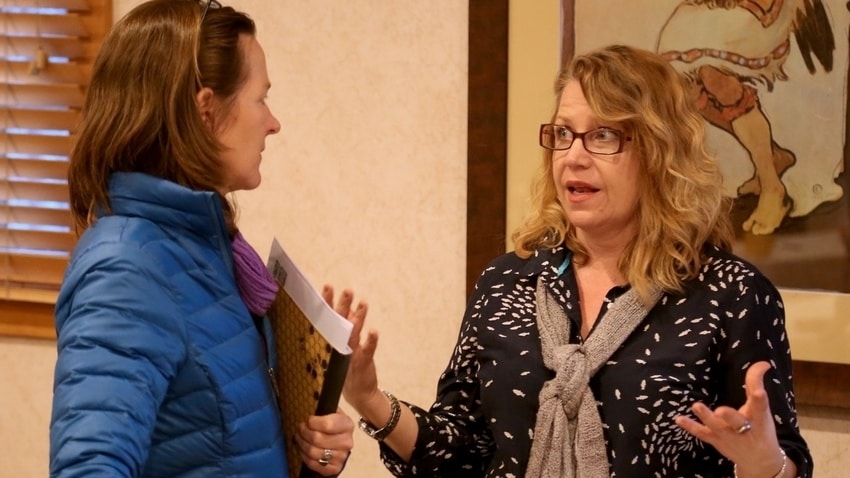
Anna Darrah (right) has licensed 800+ films working for Gaiam and Spiritual Cinema Circle. She consults with filmmakers to help sell and find distribution for their films.
The Secret World of Distribution
Canadian filmmakers tend to understand the distribution world better than their US counterparts because they have organizations in place that govern this aspect of the film industry, where they discuss terms, definitions and accepted practices.
In the US there is no effective governing body for distribution, and the story of distribution just isn’t taught.
In fact, the only way to learn about film distribution (before Google) was to mentor with someone who knew the ropes.
You had to follow a veteran distributor around, picking up the lingo, the rules, the ask, the offer. Sometime later, you could go out on your own, propagating the system that you had learned from your teacher, making deals and hopefully making money.
One of the problems with this mentorship method of passing down knowledge is that there are so many different aspects of distribution within the film industry (Cable, TV, Streaming, International sales, Home Video, Educational, Theatrical, Broadcast, Airline and other ancillary sales).
Students could only learn what their mentors were proficient in, which was usually very specific to the role they performed within the industry.
In other words, this mentoring method was severely limited by the scope of the mentor’s expertise.
Why would we allow an entire aspect of the film industry to be conducted with so little oversight?
Could it be to keep the filmmakers in the dark?
Think about it: without standard practices and commonly accepted terms, filmmakers were not able to learn the business except by being in it for years and years, making lots of mistakes and learning from their successes and failures.
With only the toughest, oldest filmmakers in the biz understanding how to navigate distribution, it became a very tight little club made up of the old codgers who made the films and the sharks who distributed them.
Everyone else was easily taken advantage of by a system set up to keep them ignorant, forcing them to operate in the dark with blindfolds on.
No wonder distribution companies are sometimes seen in a negative light by filmmakers who distrust their motives.
Today's Distribution Landscape and Understanding Your Rights As A Filmmaker
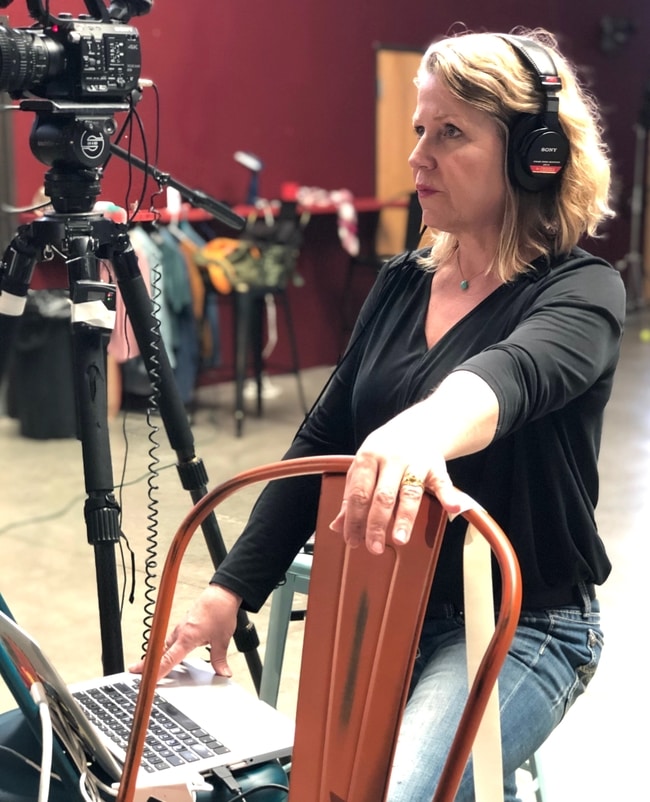
This situation is changing today, as a trend towards transparency is becoming the norm.
Increasingly, distributors are adopting common practices simply by agreeing to what the filmmakers are demanding.
For instance, as companies begin to put caps on expenses in their contracts, we end up with a standard practice that filmmakers can count on and the companies who don’t include expense caps in their contracts really stand out.
You don’t have to be an expert in distribution to realize that without a cap on expenses, you might never make any money back from your deal.
Savvy filmmakers (of all ages) are demanding those caps and distributors are listening.
Because of our history of Wild West distribution policies, today in the US we have a split between the old-school practices and the new.
Old school companies (and lawyers) are slowly adapting to cutting edge practices as new school companies invent alternative ways to cultivate an audience and get films seen. But because there is no governing body blessing these changes and dictating terms to the distribution companies in the US right now, each company tends to develop their own terms, definitions and accepted practices.
These practices might work fine within one segment of the business, but when we need to communicate with people operating within another segment of the distribution pie, it can be very confusing looking at contracts with totally different terms and accepted practices.
As a distribution consultant, I’ve been seeing this crazy scenario first-hand within the contracts I’m helping filmmakers negotiate.
Every company seems to have a different set of terms and definitions.
Many companies now include a Glossary within their contracts to clarify what the heck they mean by each term.
This is why I feel so passionately about teaching film distribution to filmmakers; if you can understand the basics of distribution and develop a reasonable understanding of where these disparate companies are coming from, you will be in a better position to negotiate the parts and pieces of the distribution puzzle that every filmmaker is responsible for today.
Just understanding this basic distinction between buyers and distributors can help filmmakers navigate the choppy waters of the film industry.
About The Author

Anna Darrah is an experienced film buyer, negotiating with and licensing 800+ films while working for Gaiam and Spiritual Cinema Circle. She is currently Head of Development for Film Nest Studios.
Anna has been an active player on the festival circuit and currently advises filmmakers on custom distribution strategies.
She is Co-instructor for Documentary Sales & Distribution 101: How To Sell Your Film
NEW! Documentary Distribution 101
Make Money With Your Documentary
In This Series:
NEXT: Film Buyer vs Distributor (PART 2)
